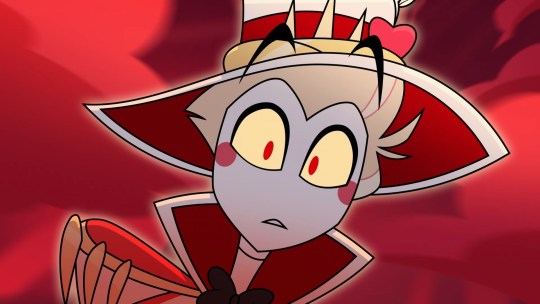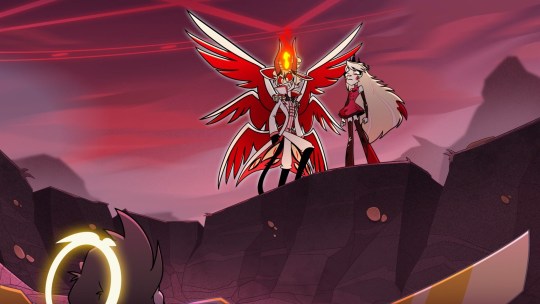#agris
Explore tagged Tumblr posts
Text




Creepy drawings inspired by music!
one of the children's drawings depicts Shosty... yeah-
33 notes
·
View notes
Text

The Covetous Master and her minions
8 notes
·
View notes
Text
AgDevCo Invests in East African Agri-business Agris to Boost Fresh Food Production
Key Takeaways Equity Investment: AgDevCo has made a significant minority equity investment in Agris, the agricultural division of Maris Ltd. Supporting Growth: The investment aims to enhance Agris’ production and distribution of herbs, vegetables, and avocados in Kenya, targeting domestic and international markets. Expansion of Operations: Agris operates through three companies—Evergreen Fresh,…

View On WordPress
0 notes
Text

himeniki enjoyers how we feeling about the foolish alien mv
god. after taking a bit to replay That Scene i had to draw this in uhhhh apparently an hour and a half. i think that during stage rehearsal himeru bluescreened when niki touched his face and they had to stop for a little to recover so. i drew it. okay it's 3 am now i sleep
121 notes
·
View notes
Text










Agri-Cultural Oasis,
The heart of Agri-Cultural Oasis is the integration of off-grid farming, tropical leisure, and cultural exploration. Inspired by the Dominican spirit of dance, music, and community, we envisioned a space that not only fosters sustainable living but also celebrates the region's rich cultural heritage. The project offers visitors a unique opportunity to experience local traditions alongside sustainable agricultural production and eco-tourism.
The design dedicates 20% of the farm’s land to photovoltaic panels, which provide renewable energy to power the entire estate. This energy source supports both farming and daily operations, while the remaining land is cultivated with crops, ensuring a self-sustaining system. By harnessing renewable energy, we’ve created a model for sustainable living that can serve as a blueprint for remote communities around the world.
Loma Atravesada, Las Galeras, Samana, Dominican Republic,
Courtesy: Xueqi Zhang
#design#art#architecture#minimal#nature#interior design#sustainability#sustainable architecture#farm#agri-culture#oasis#loma atravesada#dominican republic#xueqi zhang#farming#off-grid#eco-tourism#renewable energy
135 notes
·
View notes
Text
Since 2️⃣0️⃣2️⃣5️⃣ is the year of a snake and anniversary of Super Sentai, here's Goseiger and Kyuranger snakes 🐍

Landick Tribe - Gosei Black 🪽
Silent Star - Ophiuchus Silver ⛎
#Tokusatsu#super sentai#power rangers#tensou sentai goseiger#uchuu sentai kyuranger#goseiger#kyuranger#power rangers megaforce#Agri#Naga#snake#year of the snake#sky#space#cosmos#angel#alien#art#fanart#colored#artitst on tumblr#illustration#gold and silver#cool#i think it's my first Tokusatsu artwork that i ever posted here lol
68 notes
·
View notes
Text
THE BUNNIES 🥺



107 notes
·
View notes
Text

Sudden art with Agris and Charlie :)
I'm too lazy to explain😭
25 notes
·
View notes
Text







he's cute, just a silly lil guy
#hazbin hotel spoilers#lucifer morningstar#charlie morningstar#he's adorable#i'm sorry but it's true#agry lil guy#i love him#he's cute like a puppy or a cat with zoomies#silly little guy
196 notes
·
View notes
Text

12.08.2024 rkgk
#tried something#bird yuri save me#angry birds#angry birds stella#angry birds gijinka#artists make stella buff like in agri birds i beg ToT
80 notes
·
View notes
Text

This is my mood rn
#wh40k#warhammer 40k#The fuck do you mean Tarentus is a desert planet?! BITCH ITS AN AGRI WORLD#AND ACCORDING TO THE URIEL VENTRIS CHRONICLES WINE COUNTRY#I CAN TOLERATE SPACE SUPER HUMANS WEARING BLESSED ARMOR FIGHTING DEMONS BUT THIS IS A BRIDGE TOO FAR#also#I see why people ship Calgar/Tigurius now#and why they like Tigurius in general he is. just a lil psyker and everyone is sooo mean to him I can't take it
39 notes
·
View notes
Text








round of applause for the aromantic sentai of all time
#for an episode all about romantic love it sure did have a very aro positive vibe like#none of these guys really know or understand what romantic love even is#and none of them are sad about the lack of it in their lives#even the girls are allowed to just be like 'wow cool concept :) not for me tho' do you unDERSTAND#literally all agri is doing is using it as an opportunity to tease (typical big brother behaviour)#alata loves his friends and wants to be friends with everyone and thats literally what falling in love means to him and i#thank you goseiger#is master head god?? maybe
33 notes
·
View notes
Text

saw an edit by @fishyizm and really wanted to draw it so i did. behold, ikea
there are many errors and it's low quality but i need to get working on other things so i'm throwing this out here now
67 notes
·
View notes

